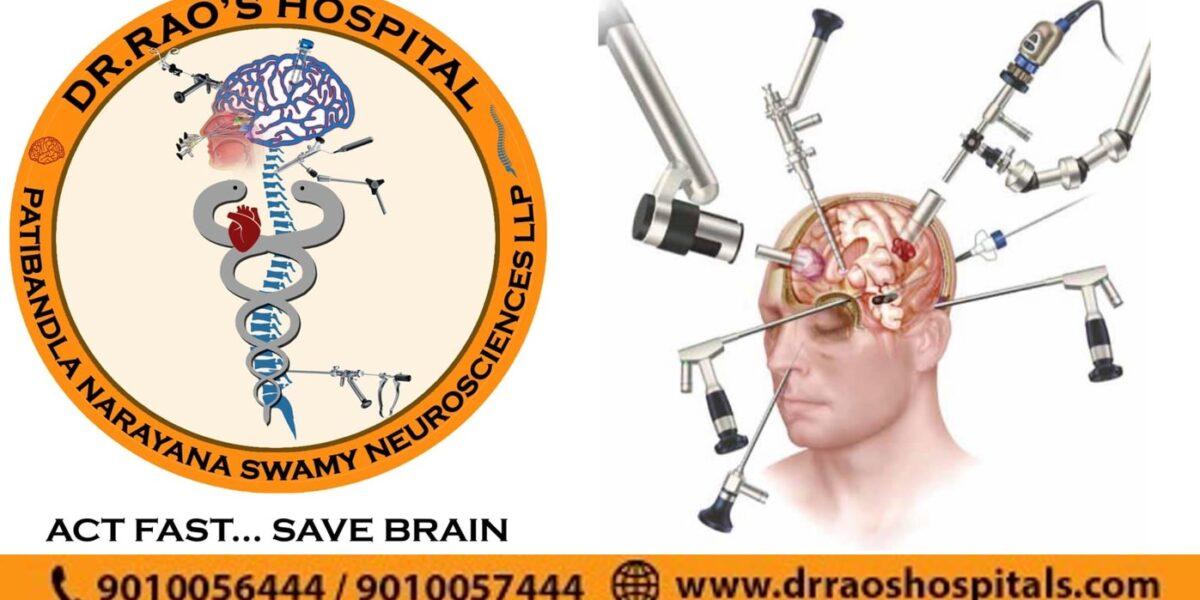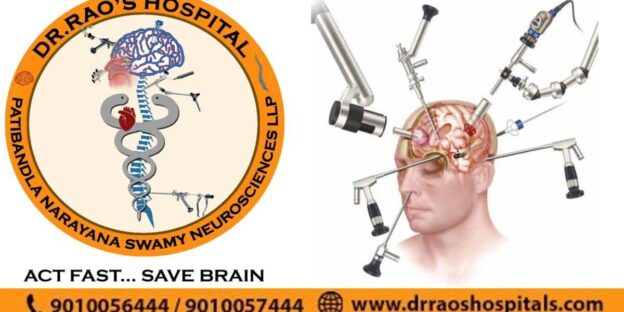Minimally Invasive Neurosurgery: Enhancing Precision and Recovery in Brain Surgery
Discover the benefits of minimally invasive neurosurgery in enhancing precision, reducing trauma, and promoting faster recovery. Dr. Rao, the best neurosurgeon in India, and Dr. Rao’s Hospital offer cutting-edge techniques for superior outcomes.
Watch More On YouTube
Introduction:
In the field of neurosurgery, advancements in technology have revolutionized the way brain surgeries are performed. One such groundbreaking approach is minimally invasive neurosurgery, which offers numerous benefits in terms of precision, reduced trauma, faster recovery, and improved outcomes. Dr. Rao, the best neurosurgeon in India, and Dr. Rao’s Hospital, the leading neurosurgery hospital, have embraced this innovative technique to provide patients with the highest level of care and optimal results.
What is Minimally Invasive Neurosurgery?
Minimally invasive neurosurgery involves utilizing advanced surgical techniques and tools to access and treat the brain while minimizing damage to surrounding tissues. Unlike traditional open surgeries that require large incisions, minimally invasive procedures involve smaller incisions, specialized instruments, and real-time imaging guidance. This approach allows neurosurgeons like Dr. Rao to navigate intricate brain structures with precision, enhancing safety and reducing risks.
Benefits of Minimally Invasive Neurosurgery:
- Precision: Minimally invasive techniques enable neurosurgeons to target specific areas of the brain with high accuracy, minimizing the risk of damage to healthy tissue. Dr. Rao’s exceptional surgical skills, combined with advanced imaging technologies, ensure precise and targeted interventions.
- Reduced Trauma: Compared to traditional open surgeries, minimally invasive procedures cause less trauma to the surrounding tissues. This leads to less bleeding, reduced post-operative pain, and a lower risk of complications. Patients experience shorter hospital stays and faster recovery times.
- Faster Recovery: Minimally invasive neurosurgery offers quicker recovery times due to smaller incisions, decreased tissue disruption, and reduced post-operative discomfort. Patients can return to their daily activities and enjoy an improved quality of life sooner than with traditional open surgeries.
- Less Scarring: Smaller incisions result in minimal scarring, contributing to better cosmetic outcomes. This is particularly important for patients who value aesthetic considerations and wish to minimize visible surgical scars.
Applications of Minimally Invasive Neurosurgery:
- Brain Tumor Resection: Minimally invasive techniques can be employed for the removal of brain tumors, allowing for precise tumor localization and safe resection while preserving critical brain functions. Dr. Rao’s expertise in this field ensures the best possible outcomes for patients.
- Deep Brain Stimulation (DBS): DBS is a minimally invasive procedure used to treat movement disorders such as Parkinson’s disease and essential tremor. It involves the implantation of electrodes in specific brain regions to modulate abnormal neural activity and improve symptoms. Dr. Rao’s extensive experience in DBS ensures optimal patient selection, electrode placement, and post-operative management.
- Endoscopic Brain Surgery: Endoscopic techniques enable neurosurgeons to access and treat certain brain conditions through small incisions and the use of specialized tools and cameras. This approach is particularly valuable in treating hydrocephalus, intraventricular tumors, and certain vascular abnormalities.
- Vascular Interventions: Minimally invasive procedures are employed in the treatment of various cerebrovascular conditions, including aneurysms and arteriovenous malformations (AVMs). Techniques such as endovascular coiling and embolization allow for the repair of blood vessel abnormalities without the need for open surgery.
Conclusion:
Minimally invasive neurosurgery, with its focus on precision, reduced trauma, and faster recovery, has revolutionized the field of brain surgery. Dr. Rao, the best neurosurgeon in India, and Dr. Rao’s Hospital, the premier neurosurgery hospital, are at the forefront of this innovative approach. Through their expertise, advanced technology, and patient-centric care, they are providing patients with the best possible outcomes and a higher quality of life.
If you or a loved one are in need of brain surgery, consider the benefits of minimally invasive neurosurgery offered by Dr. Rao and the exceptional team at Dr. Rao’s Hospital. Their commitment to innovation, precision, and patient care ensures that you receive the most advanced treatment options and personalized attention.
Take the first step towards a healthier future by scheduling a consultation with Dr. Rao, the best neurosurgeon in India. Together, you can explore the possibilities of minimally invasive neurosurgery and how it can enhance precision, promote faster recovery, and improve your overall quality of life.
#MinimallyInvasiveNeurosurgery #PrecisionSurgery #FasterRecovery #BrainSurgery #DrRaosHospital #BestNeurosurgeon #neurosurgery #spinesurgery #surgery #neurosurgeon #doctor #neurology #surgeon #spine #medicine #medical #neuroscience #neuro #brain #orthopedicsurgery #surgicalinstruments #brainsurgery #medstudent #neurocirurgia #anatomy #neurocirugia #health #neurochirurgie #surgical #dentalinstruments #gynecology #surgeryinstruments #healthcare #entinstruments #neckpain #nurse


